The Breakfast Club generation isn’t done yet – and can give Trump and May a run for their money
A chance revisiting of 1980s classic ‘The Breakfast Club’ takes one Eighties youth back in time to an epoch and generation whose spirit of rebellion can yet deliver the world into sanity
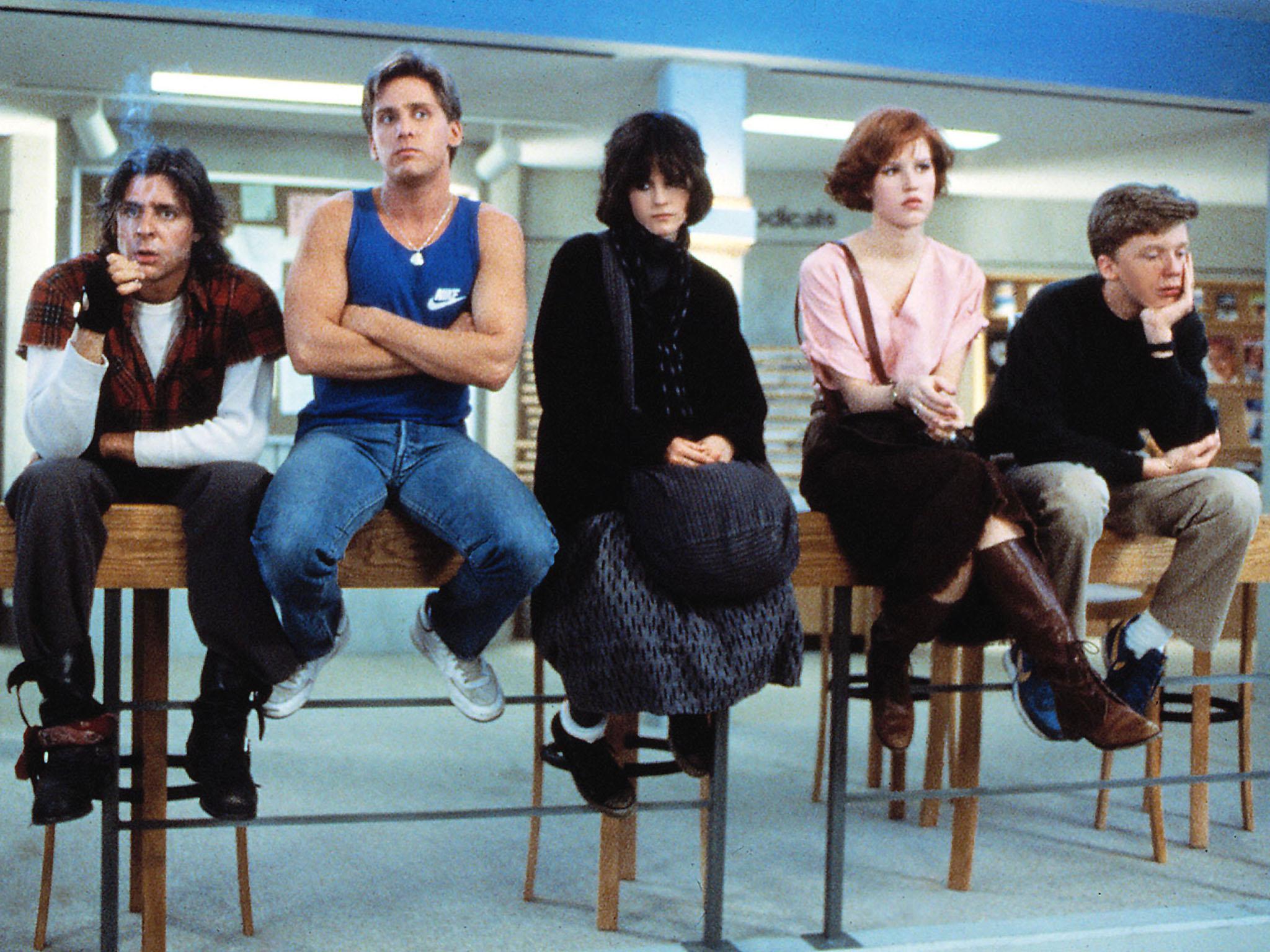
Last weekend I had occasion to re-watch, for the first time in many years, John Hughes’ classic 1985 coming-of-age film The Breakfast Club. My son, at 13, has been investigating Hughes’ oeuvre, first with Ferris Bueller’s Day Off (1986), then Pretty in Pink (1986). So we decided it was time for the big one.
I was a couple of years older than our son when I watched The Breakfast Club, whenever it was that it came to The Ritz in Wigan; summer 1985, I think. I was immediately captivated. The characters on screen were a little older than me, and the setting was Illinois, not Lancashire, but it felt for the first time that I was watching a movie I could actually relate to.
You know the story. A disparate bunch of students have to spend a whole Saturday in detention for various misdemeanours. At the end of their eight hours of self-reflection, they are each meant to turn in to bitter, disillusioned teacher Richard Vernon an essay discussing, essentially, who the hell they think they are.
The Breakfast Club was the quintessential “brat pack” movie of the Eighties: Emilio Estevez as wrestling champ Andrew; your teen crush Molly Ringwald as rich girl Claire; Ally Sheedy as weirdo outsider Allison; Anthony Michael Hall as nerdish goody-goody Brian; and a supreme turn by Judd Nelson (actually about a decade older in real life than the character he was portraying) as John Bender, from so far over the wrong side of the tracks he had no hope of ever catching the train.
They argue, they highlight their differences, they bond, they smoke weed, they dance, they argue again. They form, after a fashion, a friendship, but tinged with the sourness that when they all go back to their various tribes on Monday, the cool kids will probably ignore the outsiders.
The closing voiceover is the essay that Brian has been tasked to write on their behalf. It’s the stuff of movie legend: “Dear Mr Vernon, we accept the fact that we had to sacrifice a whole Saturday in detention for whatever it was we did wrong. But we think you’re crazy to make us write an essay telling you who we think we are. You see us as you want to see us – in the simplest terms, in the most convenient definitions. But what we found out is that each one of us is a brain... and an athlete… and a basketcase... a princess... and a criminal... Does that answer your question? Sincerely yours, The Breakfast Club.”
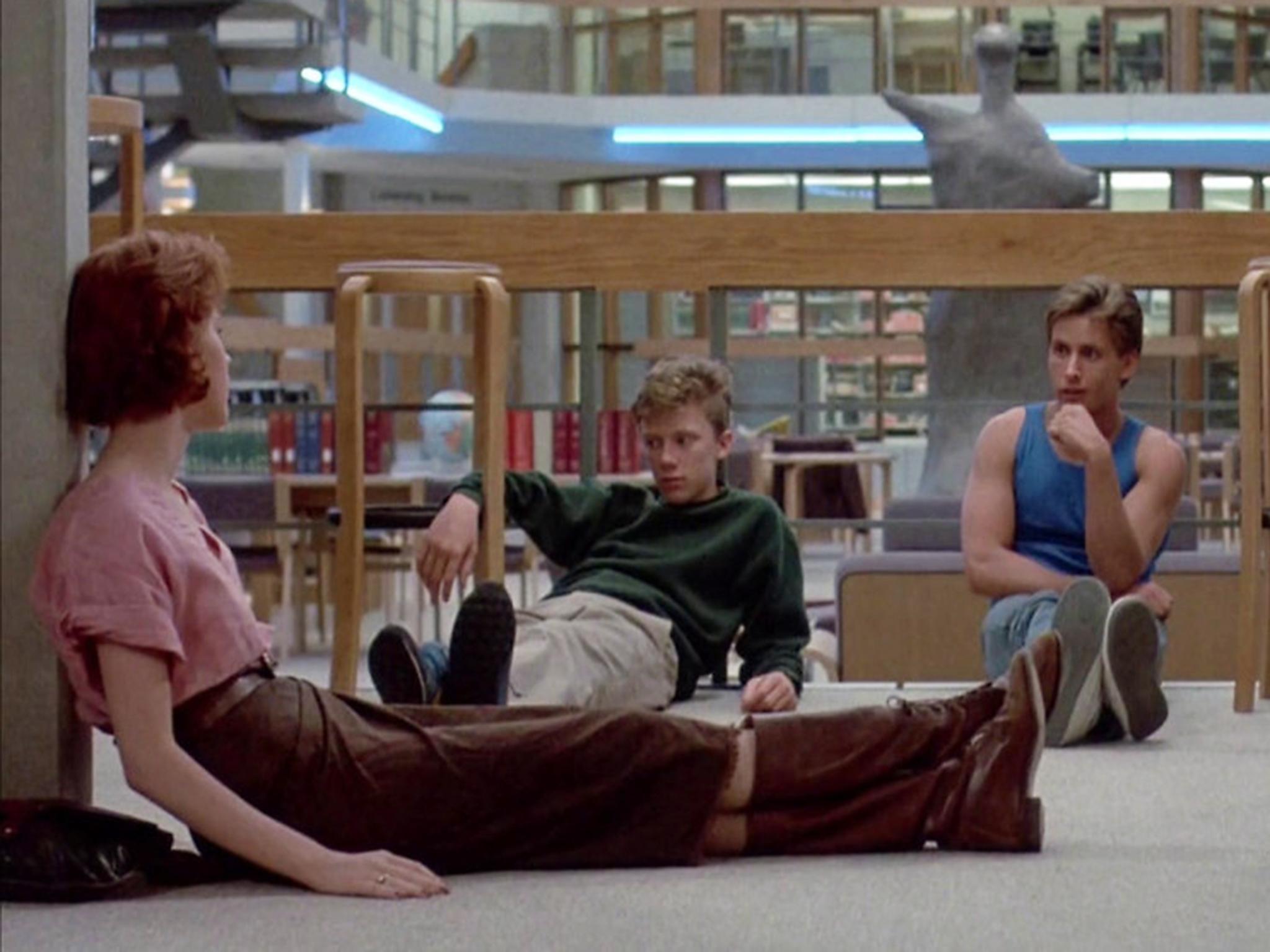
But it isn’t that quote, burned into my brain for more than 30 years, that caught my eye this time round. In fact, it was two different things that made me sit up and wonder… whatever happened to the Breakfast Club?
Not in terms of where the actual characters are now, though believe me I did spend more hours than necessary pondering that the last week. If you’re at all interested, I plotted out a whole “Breakfast Club 2” in which they meet up by co-incidence three decades later at some trendy Chicago coffee shop. Brian’s done well for himself, let me tell you; he made a million from designing and selling elephant lamps that light up when you press the trunk. One for the fans, there, but we’re getting off the point.
No, what I really mean is, I wondered what happened to the Breakfast Club generation, my generation, in the light of two sequences that jumped out at me from my re-watch last weekend. The first was when the teacher, Vernon, is sounding off to the janitor, Carl. “You think about this,” he says. “When you get old, these kids… when I get old… they’re going to be running the country.”
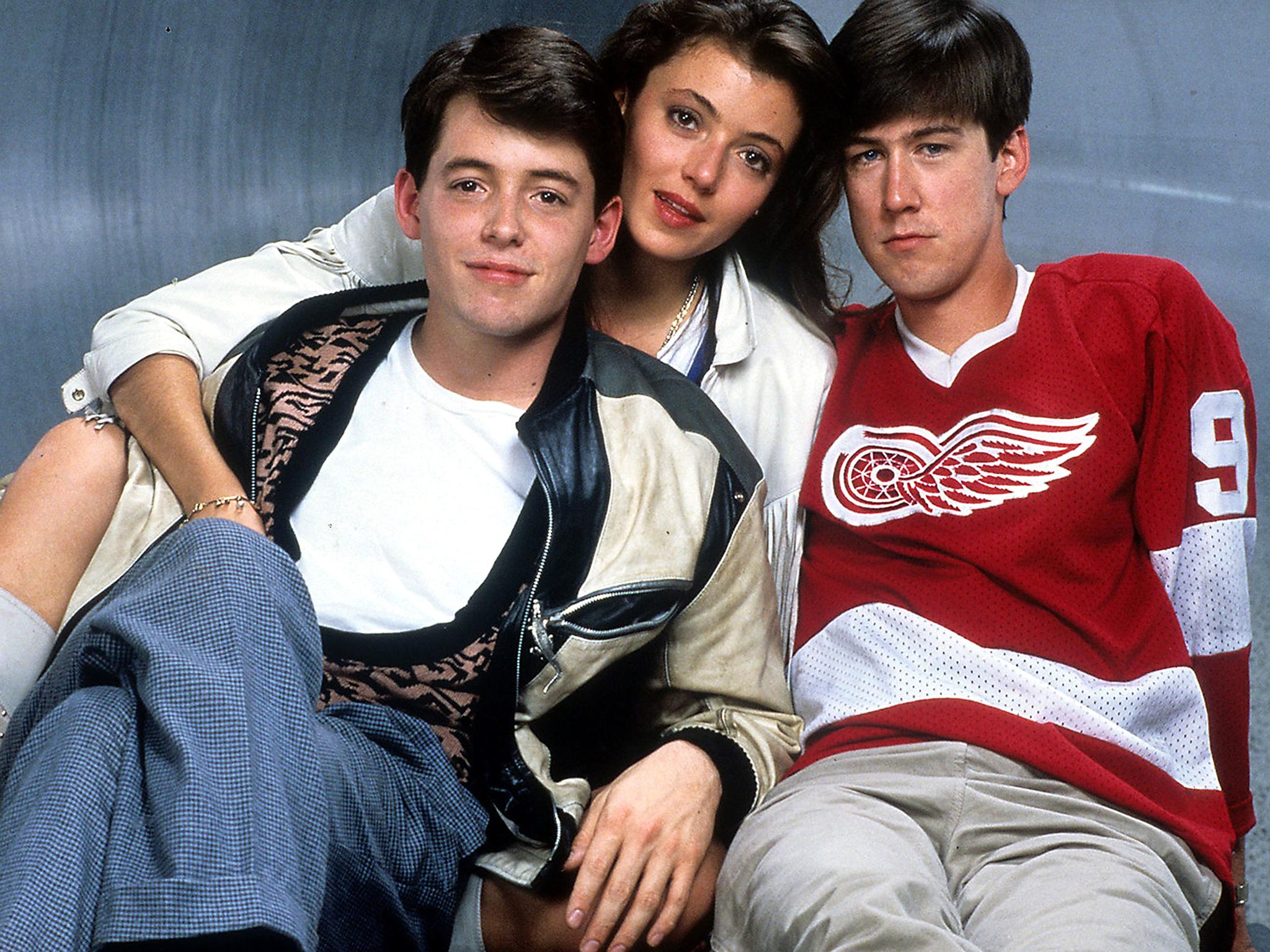
This, of course, is a Bad Thing. Vernon encapsulates the baby-boomer generation, the one that thinks their kids were – to employ labels that came in a few years after The Breakfast Club – lazy, shiftless, unfocused slackers, Generation X, with no motivation or direction.
The second bit came later in the film, once it’s established that all of the kids are at odds with their families. Weirdo Allison is ignored; Claire has money and expensive gifts thrown at her in place of proper parenting; Andrew’s father expects him to be the same bullying jock he was; Brian’s family piles on the pressure of expected excellent grades, and Bender’s dad treats him like a punchbag.
“My God,” says Andrew, the jock, glumly. “Are we gonna be like our parents?”
For me, those two quotes go hand-in-hand, and they made me realise just how prescient John Hughes was being when he made The Breakfast Club. Hughes died in 2009; he was born in 1950 – he was in his early thirties when he conceived of and made the movie.
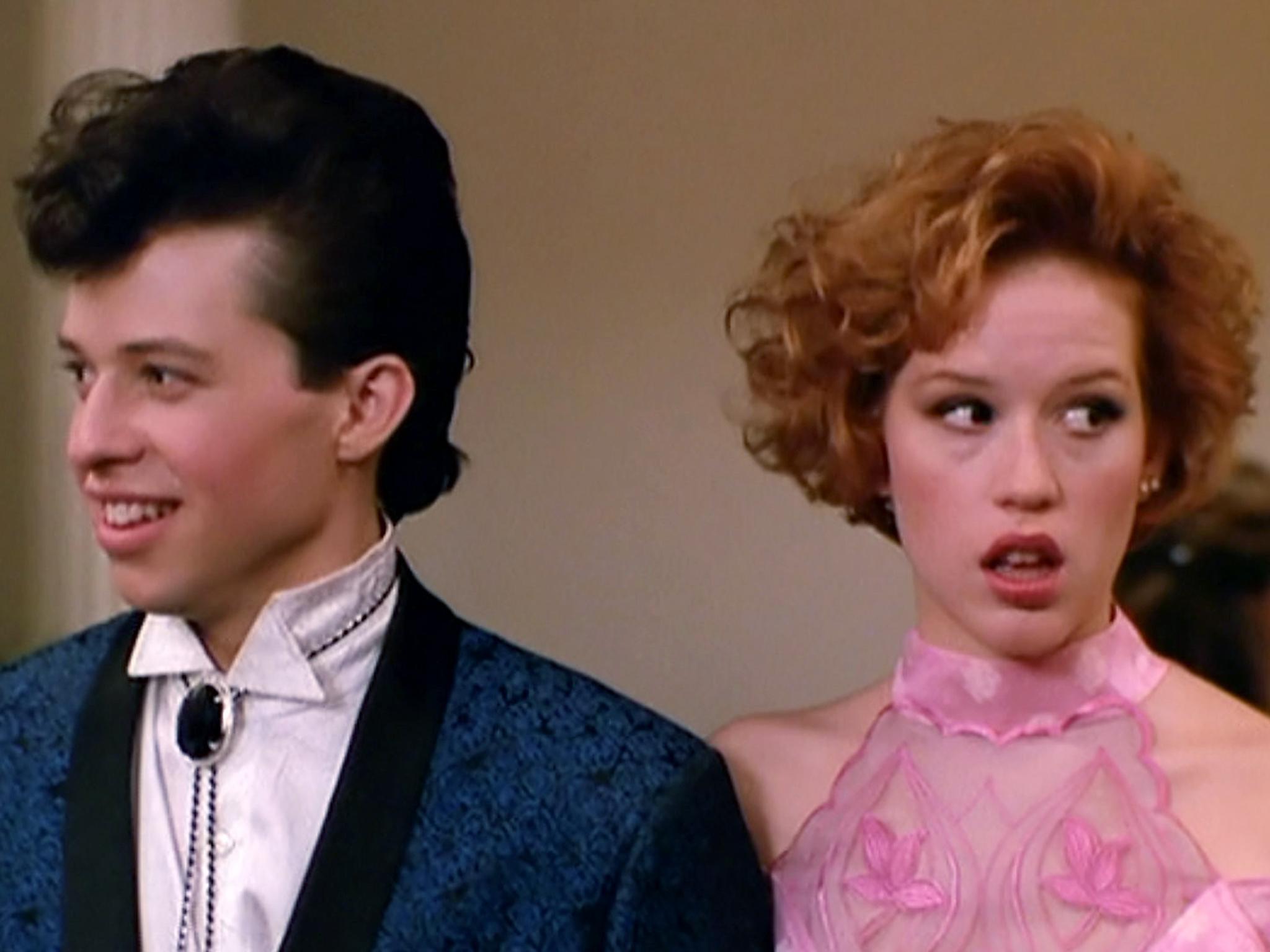
When I watched The Breakfast Club, my parents were not quite yet 40. But they were already, if not exactly in outlook and lifestyle, following the path laid down by their own parents: job, marriage, house, children, everything in place by the time you’re 25. It was the way of things.
So when Hughes, through Andrew, asks, “Are we gonna be like our parents?” it wasn’t just empty teenage posturing. It was pretty much the path of life set down for the majority, if we were going to follow the lead of the generations that had come before.
Only, it wasn’t. We were the generation that wanted more, we just didn’t quite know what it was or how we were going to get it. More Hughes prescience on that score, which I didn’t really notice until last weekend: in the library where the detention takes place, there are a bank of big, old, Eighties computers, and on the wall is tacked a notice that says, “Hackers will be expelled”. The internet wasn’t even a twinkle in Tim Berners-Lee’s eye at that point, but that was what was going to revolutionise the world, and give the Breakfast Club generation the means to foment proper, meaningful rebellion against their parents and the paths the world expected them to meekly take.
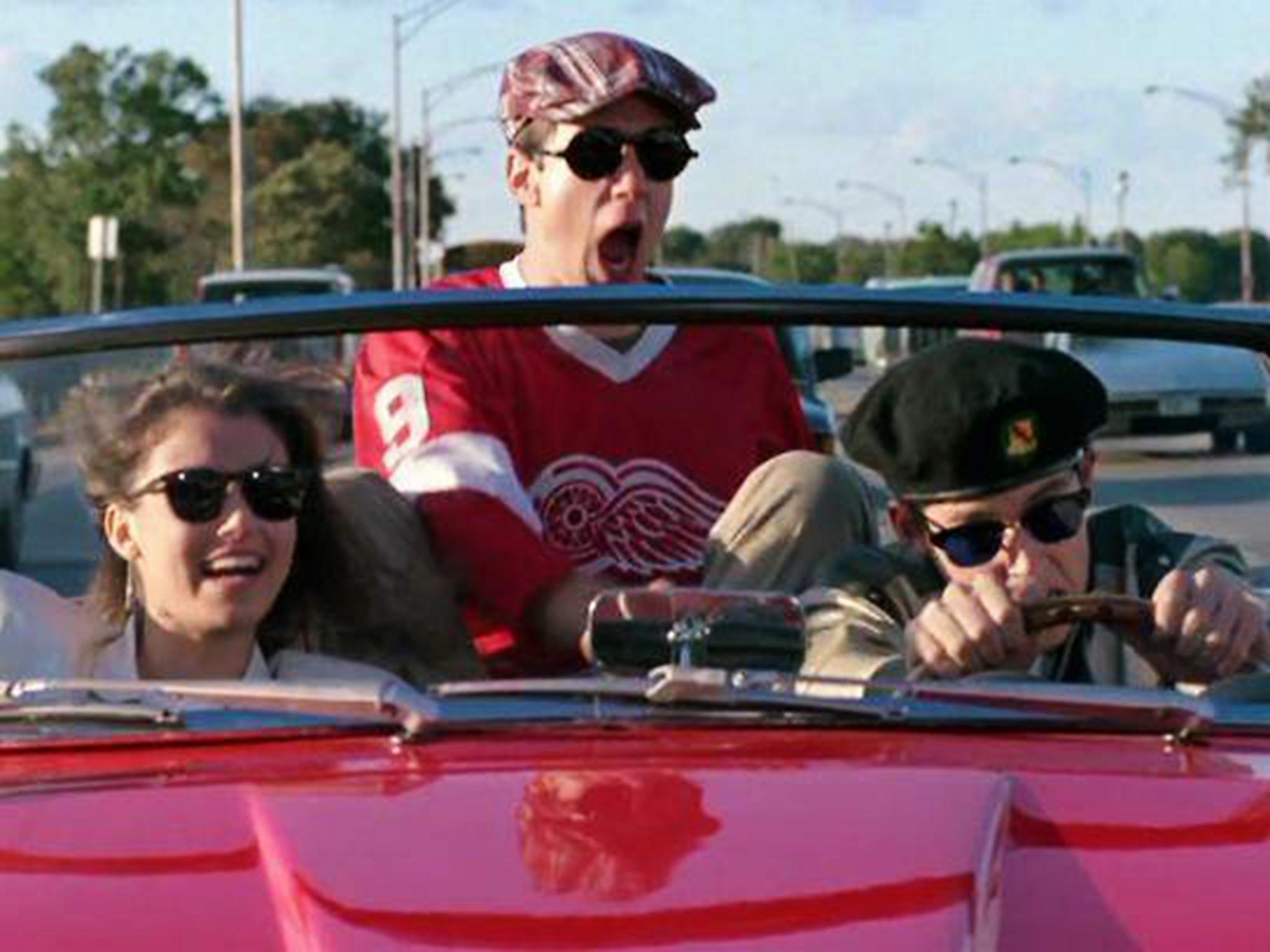
But in 1985 we just looked like slackers. Which is why Vernon’s musing about the kids running the country is so apposite. He could smell which way the wind was blowing, though he might not have been able to vocalise it. These kids didn’t want what their parents wanted. Where the hell was that going to leave the world?
Vernon makes his world-weary observation to Carl, the school janitor. Carl’s a figure of fun for the kids, a loser. Bender trolls him by asking him how one might pursue a career in “the custodial arts” – become a janitor. But there’s a telling, poignant, blink-and-you’ll-miss-it moment. Very briefly, the camera focuses on portraits in the hall of past alumni of Shermer High School who have been awarded the accolade Man of the Year. Carl’s on there, smiling and handsome in 1969. And 16 years later, he’s pushing a broom around after kids who think he’s an “untouchable peasant”.
Carl is John Hughes’ salutary warning against not fulfilling your potential, against just taking what life gives you, and not wanting more. Against just being like your parents.
There might be some of you reading this saying, well, yeah, the Breakfast Club generation is in charge now. And you’ve not exactly done a great job, have you?
Well, not quite. Donald Trump is 70. Theresa May is 60. Angela Merkel, 62, as is François Hollande. They’re generally a little younger than Mr Vernon would be now; and older than the Breakfast Club. It’s that mid-generation that runs the country, runs the world.
And that means, the Breakfast Club hasn’t quite had it’s shot at it, just yet. Another 10 years, maybe, and perhaps that’s when you’re going to see what happens when the world is properly curated by a generation that refused to be pigeonholed in the simplest terms and the most convenient definitions, that refused to just do the same things the previous generation did, that wanted change.
Now, can I get a closing-credits John Bender air-punch for the Breakfast Club generation?
Join our commenting forum
Join thought-provoking conversations, follow other Independent readers and see their replies
Comments
Bookmark popover
Removed from bookmarks